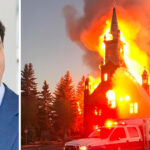Blog Post
Harvard law professor proposes banning homeschooling to combat the influence of “conservative Christians”
By Jonathon Van Maren
Harvard’s Elizabeth Bartholet, Wasserstein public interest professor of law and faculty director of Harvard Law School’s Child Advocacy Program, has chosen now of all times to come out and lay out what she believes is one the greatest threats to the wellbeing of children today: Homeschooling.
This month’s edition of Harvard Magazine contains her analysis in an article titled “The Risks of Homeschooling,” in which Bartholet essentially explains why people who do not think the way she thinks are dangerous to their own children, because of the fact that they do not think the way she thinks. Due to the stubborn unwillingness of some parents to hand their children off to state schools to receive their pre-approved worldview, Bartholet thinks that the government should step in and ban the practice of homeschooling entirely.
Just to get this out of the way right off the top: I myself was not homeschooled, so this analysis is not coming from a personal beef with Bartholet. But her analysis is dangerous and ignorant and must be called out as such. Bartholet notes that a “rapidly increasing number of American families are opting out of sending their children to school, choosing instead to educate them at home”—a number that has climbed to around 2 to 4 percent of school-age children in America.
This, as you can imagine, is a worrisome breakoff from the herd, and thus Bartholet told Harvard Magazine that she “sees risks for child—and society—in homeschooling, and recommends a presumptive ban on the practice.” When she says “for society,” by the way, she means the sort of society she desires—and that parents who disagree with her on what a healthy society looks like must have their children forcibly sent to state schools for re-education. From the article:
Homeschooling, she says, not only violates children’s right to a “meaningful education” and their right to be protected from potential child abuse, but may keep them from contributing positively to a democratic society.
“We have an essentially unregulated regime in the area of homeschooling,” Bartholet asserts. All 50 states have laws that make education compulsory, and state constitutions ensure a right to education, “but if you look at the legal regime governing homeschooling, there are very few requirements that parents do anything.” Even apparent requirements such as submitting curricula, or providing evidence that teaching and learning are taking place, she says, aren’t necessarily enforced. Only about a dozen states have rules about the level of education needed by parents who homeschool, she adds. “That means, effectively, that people can homeschool who’ve never gone to school themselves, who don’t read or write themselves.” In another handful of states, parents are not required to register their children as homeschooled; they can simply keep their kids at home.
This practice, Bartholet says, can isolate children. She argues that one benefit of sending children to school at age four or five is that teachers are “mandated reporters,” required to alert authorities to evidence of child abuse or neglect. “Teachers and other school personnel constitute the largest percentage of people who report to Child Protective Services,” she explains, whereas not one of the 50 states requires that homeschooling parents be checked for prior reports of child abuse. Even those convicted of child abuse, she adds, could “still just decide, ‘I’m going to take my kids out of school and keep them at home.’”
So Bartholet, you see, not only wants kids forced into state schools that teach the ideology of her choice, but she also wants them in school earlier—maybe even at age four. The earlier children are separated from their parents, after all, the easier it is to take control of their worldview. Of course, Bartholet uses child abuse as the main reason that homeschooling should be banned—a not-so-subtle insinuation that homeschooling parents are more likely to be potential abusers. And those parents, according to Bartholet, are likely to be a particularly insidious type of person: Conservative Christians. More:
In a paper published recently in the Arizona Law Review, she notes that parents choose homeschooling for an array of reasons. Some find local schools lacking or want to protect their child from bullying. Others do it to give their children the flexibility to pursue sports or other activities at a high level. But surveys of homeschoolers show that a majority of such families (by some estimates, up to 90 percent) are driven by conservative Christian beliefs, and seek to remove their children from mainstream culture. Bartholet notes that some of these parents are “extreme religious ideologues” who question science and promote female subservience and white supremacy.
Children should “grow up exposed to…democratic values, ideas about nondiscrimination and tolerance of other people’s viewpoints.”
Got that? Conservative Christians are possibly “white supremacists” and should not be permitted to raise their own children. They must be “exposed to” the views that Bartholet thinks children should be exposed to, specifically the “nondiscrimination and tolerance of other people’s viewpoints.” What she means by that, of course, is that she wants the government to force parents to send their children to schools where they will have her worldview rammed down their throats.
State schools were successfully colonized by LGBT activists and progressives a long time ago, but much to their dismay, many parents decided, in response, to send their children to private Christian schools or to teach them at home. That is why homeschooling and private institutions enrage progressives so much: It means that there are children who are out of their reach—at least until they get to college or university. To solve this problem, folks like Bartholet are now claiming that “homeschooled children” being taught by their parents might be “a threat to U.S. democracy” because they don’t have the same education as children who attended public schools:
“From the beginning of compulsory education in this country, we have thought of the government as having some right to educate children so that they become active, productive participants in the larger society,” she says. This involves in part giving children the knowledge to eventually get jobs and support themselves. “But it’s also important that children grow up exposed to community values, social values, democratic values, ideas about nondiscrimination and tolerance of other people’s viewpoints,” she says, noting that European countries such as Germany ban homeschooling entirely and that countries such as France require home visits and annual tests.
It bears pointing out here that the German law banning homeschooling was passed by the Nazis in 1938 for obvious reasons. It is not surprising that Bartholet leaves that bit of information out. More:
In the United States, Bartholet says, state legislators have been hesitant to restrict the practice because of the Home Schooling Legal Defense Association, a conservative Christian homeschool advocacy group, which she describes as small, well-organized, and “overwhelmingly powerful politically.” During the last 30 years, activists have worked to dismantle many states’ homeschooling restrictions and have opposed new regulatory efforts. “There’s really no organized political opposition, so they basically get their way,” Bartholet says. A central tenet of this lobby is that parents have absolute rights that prevent the state from intervening to try to safeguard the child’s right to education and protection.
Bartholet maintains that parents should have “very significant rights to raise their children with the beliefs and religious convictions that the parents hold.” But requiring children to attend schools outside the home for six or seven hours a day, she argues, does not unduly limit parents’ influence on a child’s views and ideas. “The issue is, do we think that parents should have 24/7, essentially authoritarian control over their children from ages zero to 18? I think that’s dangerous,” Bartholet says. “I think it’s always dangerous to put powerful people in charge of the powerless, and to give the powerful ones total authority.”
She concedes that in some situations, homeschooling may be justified and effective. “No doubt there are some parents who are motivated and capable of giving an education that’s of a higher quality and as broad in scope as what’s happening in the public school,” she says. But Bartholet believes that if parents want permission to opt out of schools, the burden of proving that their case is justified should fall on parents.
“I think an overwhelming majority of legislators and American people, if they looked at the situation,” Bartholet says, “would conclude that something ought to be done.”
Keep in mind here that there is actually a lot of evidence that children who are home-schooled in the United States do better academically than children who attend government schools. But this is not about that: This is about the so-called “right” that children have to be exposed to Bartholet’s worldview, while they are still children. It is about Bartholet’s right to see other people’s children educated the way she sees fit. It is about denying parents the right to raise their children in their own religious traditions. And at the end of the day, it is about taking the children of “conservative Christians” and making sure that by the time their education is complete, they will reject the beliefs of their parents and instead become the sort of people that Bartholet and her progressive allies believe to be productive members of a democracy.
Follow this argument very, very carefully. This is a trial balloon, but be assured that this is precisely what progressives actually want to implement. These ideas start in academia, and end up as legislation. Few politicians would dare say what Bartholet has said out loud, but many of them would eagerly seize the opportunity to take her advice.









This also plays into the mandatory vaccinations hand. If you have to be vaccinated to attend school and it is illegal to homeschool or not attend school then you have to get all of the shots.
Inside every progressive is a would-be Stalin or Hitler.
That’s an awfully bold claim – do you have any evidence for this?
Or is it possible that you are smearing an awful lot of people who happen to think slightly differently from you?
Classic pincer movement; these people have no conscience! It strikes me that this “professor” of law doesn’t acknowledge Article 2 of the Universal Declaration of Human Rights!!
I would recommend you to listen to the famous homeschooling Mum Julie Bogart comment on this article on her podcast. To give you the taste of it “There are plenty of flawed arguments in this article, but the best way to handle a perceived threat is to take it seriously and look at what does check out and address that. If the homeschooling community had a response to the concerns of child abuse, the rest of the argument would fall apart. And honestly, it’s a valid point that we should be addressing.” This is what you should think about. Hear her entire podcast here. If we are just defensive and brag about wonders of homeschooling, we are close minded indeed. And I say that as a homeschooling mum myself and I love that lifestyle. The point of the article is the child abuse that may happen and happens in a few homeschooling families. It doesn’t help me to think that they are a few and that the vast majority of homeschooling families are decent. What do you mean? If there is even one kid who suffers abuse unnoticed under the cover of homeschooling, I would like to stand up for that kid, not for my lifestyle. Wouln’t you?
http://blog.bravewriter.com/2020/05/06/podcast-risks-of-homeschooling/?fbclid=IwAR0tTIQvb9d3mVqlPfuWvUOiwK2Wy2t9IeL-hwtIxKjElK9N4MUP5KaCqXo
Who wrote this? Who thinks this is normal. Where do you get off telling people they should be a certain way. Forcing a way on people is wrong. I should be allowed to believe in whatever I want.